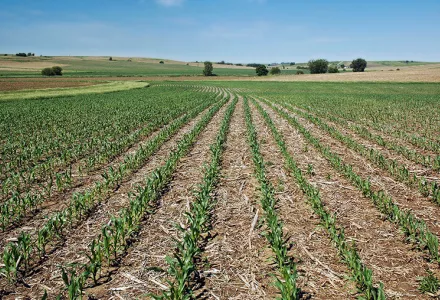Study Group Leader
Dr. Ashlie Burkart, MD, CM is an Associate of the Environment and Natural Resources Program at Harvard Kennedy School’s Belfer Center, and the Chief Scientific Officer at Germin8 Ventures — a venture capital firm that impact invests in food and agriculture innovation. Dr. Burkart is also a practicing gastrointestinal pathologist and grant-funded researcher in gut health.
Drawing upon her deep pathology and research background, Dr. Burkart plays a key role in extending Germin8’s scientific capabilities and actively supporting Germin8 portfolio companies. Dr. Burkart’s extensive knowledge across health and nutrition, microbiome, agro-ecology, and climate alike positions her effectively as a medical-ecologist bringing intellectual horsepower to shepherd a new standard of care for people and the planet, enabled by our food.
Dr. Burkart received a B.A. in biology from Brown University, where she graduated magna cum laude with an honors in neuroscience, and an M.D. from McGill University’s Faculty of Medicine and Health Sciences. Dr. Burkart completed residencies in anatomic pathology and clinical pathology at John Hopkins Medical Institutions, as well as a fellowship in gastrointestinal/liver pathology at the Hospital of the University of Pennsylvania. She is a recipient of the Dean’s Award for Distinguished Teaching, the highest teaching award that is awarded by the graduating medical school class. Dr. Burkart was also awarded the National Leonard Tow Humanism in Medicine Award, which the medical college awards to “one faculty member who demonstrates both clinical excellence and outstanding compassion.”
Guest Experts and Practitioners
Zach Ducheneaux was appointed Administrator for USDA’s Farm Service Agency on February 22, 2021. In this role Ducheneaux will provide leadership and direction on agricultural policy, administering loan programs, and managing conservation, commodity, disaster, and farm marketing programs through a national network of offices.
Ducheneaux previously served as the Executive Director of the Intertribal Agriculture Council and had been with the IAC since the 1990s. He has also previously served as tribal council representative for the Cheyenne River Sioux Tribe. He has spent his career educating people about the critical role of improved food systems, value-added agriculture, and foreign exports to respond to the enduring economic and social challenges facing Native Americans and reservations.
Ducheneaux serves on the board of directors for Project H3LP!, a nonprofit founded by his family to benefit their local community by providing life lessons through horsemanship. His family still operates the 4th generation ranch on the Cheyenne River Sioux Reservation.
Aria McLauchlan is the Co-founder & Executive Director of Land Core, a non-profit organization advancing soil health policies and programs that create value for farmers, businesses and communities. In her role at Land Core, she has shepherded the organization’s rise to the center of the national soil health conversation. She guided the successful passage of language in both the House and Senate in 2019, supporting soil health at the USDA, and built a broad coalition of farmers, businesses, and NGOs to help secure over $50M in federal investment in soil health in the 2018 Farm Bill.
In 2021, Aria was recognized with the Emerging Leaders in Food & Agriculture award for her work on U.S. food and agriculture systems and soil health policy. She was a 2018 Exchange Fellow at the Stone Barns Center for Food and Agriculture - selected as a leader at the intersection of food, agriculture and climate change equipped to tackle vexing challenges and identify emerging opportunities for systemic change across geographies and disciplines.
Previously, Aria served as communications director of a California-based non-profit organization promoting healthy soil. In this role, she directed the launch of “The Soil Story,” a petition campaign that resulted in the passing of the California Healthy Soils Initiative. Aria previously spent a decade working in business development, marketing and communications, primarily on social impact campaigns for global brands and non-profits.
Mitchell Hora is a 7th generation Iowa farmer and the Founder/CEO of Continuum Ag, a soil health data intelligence company. Continuum Ag launched TopSoil as the first soil health data platform in early 2020 and has grown its footprint to over 38 states and 15 countries as it pursues its mission to help 1 million farmers profit from improving their soil health. The company helps farmers systematically implement regenerative ag, while avoiding risk and positioning farmers to tell their story and create environmental outcomes, like carbon credits. Continuum expands its scope via its global consultant network and collaborations with organizations, such as Rabobank, Land O'Lakes, CIBO, and others. For his efforts, Mitchell has been named to the Forbes Under 30 and the AgGrad 30 Under 30 list.
Nicole Buckley Biggs, PhD – Director of Sustainability at AgriWebb, and Affiliated Scholar, Stanford University Bill Lane Center for the American West. Dr. Buckley Biggs is an environmental scientist focused on global food system sustainability and environmental opportunities on livestock grazing operations. She serves as Director of Sustainability at AgriWebb, the leading livestock business management software company globally. In her role, Nicole works with stakeholders across the food supply chain on corporate Net Zero strategy, biodiversity, drought tolerance and economic resilience. Nicole brings a decade of experience working on environmental policy and program implementation within the NGO sector, including as Assistant Director of the Aspen Institute’s Energy & Environment Program and as Campaign Director - Northern Sierra Partnership with The Nature Conservancy. Nicole earned her PhD from the Stanford School of Earth, Energy & Environmental Sciences and her undergraduate degree in Anthropology and East Asian Studies from Harvard University. Her academic work has been published in Rangeland Ecology & Management, Landscape Ecology, Ecology & Society, and Environmental Research Letters. Areas of expertise: Agriculture, livestock operations, payments for ecosystem services, climate change, conservation, nature based solutions, land use change, large landscape conservation.
Arohi Sharma serves as the Deputy Director of Regenerative Agriculture at the Natural Resources Defense Council (NRDC), an environmental nonprofit organization that defends our air, water, communities, and wild places. Arohi specifically advocates for policies that promote regenerative agriculture to mitigate climate change, protect soil health, conserve and reduce water use, and restore biodiversity in California and nationally. She led a coalition that secured more than $2 billion in investments for California food and farming systems, successfully advocated for improvements to the California Healthy Soils Initiative and State Water Efficiency and Enhancement Program, secured language for regenerative agriculture to be included in California’s 2023 Cap-and-Trade Spending Plan, and published NRDC’s premiere report on regenerative agriculture titled Regenerative Agriculture: Farm Policy for the 21st Century.
Before joining NRDC, Arohi was a student at the Harvard Kennedy School of government, where she researched how to incentivize multi-stakeholder partnerships to help mitigate climate change and worked for the Ethiopian Government to help draft the nation’s first sustainable agricultural development strategy. Prior to graduate school, Arohi served as a legislative staffer on Capitol Hill for the U.S. Senate Agriculture Committee and Senator Cory Booker. She holds a bachelor’s degree in political science from the University of California, San Diego and a master’s degree in public policy from the Harvard Kennedy School of Government. In 2020, Arohi was awarded the John E. Bryson fellowship for her work on water and agriculture, and earlier this year she was named one of the 12 badass women cultivating sustainable food systems by GreenBiz.
Jenette Ashtekar, PhD is the SVP of Product Management at CIBO, a science-driven software startup. Jenette is an entrepreneurial scientist and agricultural technology innovator experienced in translating and delivering novel IP into real world solutions. Jenette spent ten years as an academic soil scientist, modeler, and entrepreneur developing and commercializing algorithms that predict soil properties, water dynamics, and productivity from sub-field to continental scales. Her technology has been used to deliver critical soil information to at risk agricultural communities throughout central and south America as well as to help US and Canadian farmers improve precision management through the use of high resolution soil maps. Ashtekar is passionate about the translation of novel technology and academic IP into practical, real-world solutions and recognizes that the complex challenges facing agriculture today can only be solved through the collaboration and integration of many diverse stakeholders.
Ashok (A.J.) Kumar, PhD (Harvard SEAS ’14) is an experienced science leader and technology developer. He is currently Vice President of Sustainability Sciences at Indigo Ag, leading the overall scientific strategy for agricultural carbon credits, Scope 3 reductions, and more in coordination with key experts. His team also oversees the design of large-scale field trials to study regenerative agricultural systems potential for sequestering carbon in soil, technology exploration to identify ground-breaking technologies to enable carbon markets to scale faster, and scientific community engagement and collaboration. Prior to Indigo, A.J. was the Chief Scientific Officer at Jana Care where he built the R&D team in Boston from the ground up, and led the development of multiple low-cost, point-of-care rapid blood tests for chronic diseases, including partnerships with companies such as AstraZeneca. He has a PhD in Applied Physics from Harvard University and a BS in Physics from Stanford University. He has authored over 20 publications and is an inventor on over 10 patents and patent applications.



